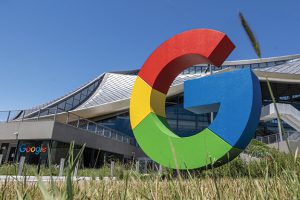Bloomberg
The UK’s antitrust watchdog started a new investigation of Alphabet Inc’s Google, over suspicions it may have abused its dominant position across its ad tech that goes to the heart of the tech giant’s business model.
The move by the Competition and Markets Authority (CMA) opens a fresh front in its regulatory tussle with Google. The CMA said it was concerned Google sought to illegally favour its own ad exchange services, while taking steps to exclude the services offered by rivals.
“Weakening competition in this area could reduce the ad revenues of publishers, who may be forced to compromise the quality of their content to cut costs or put their content behind pay walls,†said Andrea Coscelli, the CMA’s Chief
Executive Officer.
Watchdogs around the world have started to home in on the huge power that firms such as Google and Meta’s Facebook wield over ad markets — striking at the heart of the tech giants’ money making machines. Google faces a separate probe by the CMA into possible collusion over the way it operates online display advertising services.
The CMA has been examining the way Google buys and sells advertising since at least 2020, saying that its advertising stack is a potential conflict of interest. It’s called for powers that would even allow for a structural changes.
“Advertising tools from Google and many competitors help websites and apps fund their content, and help businesses of all sizes effectively reach their customers,†Google said in a statement. “When publishers choose to use our advertising services, they keep the majority of revenue.â€
Meanwhile, Google is staking its vision for the future on what it’s calling “ambient computing,†according to Rick Osterloh, Google’s hardware chief.
“Computers should be able to help you with whatever you need seamlessly, and be all around you,†Osterloh said in a Bloomberg Television interview.
Alphabet Inc’s Google introduced a fleet of product updates and upcoming devices, including a new Pixel-branded tablet and smartwatch.
Google’s first attempt at internet-connected eyewear — Google Glass — was a famous flop that left the search giant more cautious about the futuristic field. In the decade since launching that device, Google has had skunkworks projects on similar augmented reality technology, but has kept most of its hardware line to more conventional smartphones, laptops and home speakers similar to rivals like Apple Inc.
“We learned so much from the introduction with Glass,†Osterloh said on Bloomberg TV. “We clearly learned how hard it is to develop this kind of technology, and learned a lot about what users care about, and what’s important.â€
 The Gulf Time Newspaper One of the finest business newspapers in the UAE brought to you by our professional writers and editors.
The Gulf Time Newspaper One of the finest business newspapers in the UAE brought to you by our professional writers and editors.
